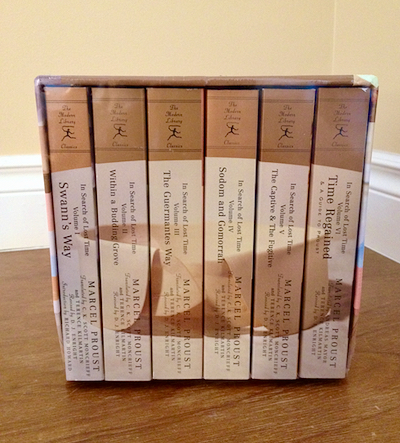At the end of every Downton TV Season, there’s a two-hour Finale. Downton Abbey the movie feels like one of those grand finish. If there’s any TV series that can move to the big screen with just a TV script, Downton Abbey will be it. The iconic Jacobean styled mansion, superb cast, beautiful costumes and set design, not to mention creator/writer Julian Fellowes’ screenplay are its assets. Nothing close to the caliber of Gosford Park (2001) which brought Fellowes a Best Writing Oscar, but this will do. Nothing deep and poignant as some of the TV episodes, but for two hours of viewing time in the theatre, there are a lot to see and savour.

Just by listening to the rhythmic rumbling bringing out the single melody line of the theme music can send vibes of excitement. The majestic aerial shots in the setting sun (or is it rising sun?) establishing the grand manor Downton Abbey’s stature on the big screen is a thrilling experience for fans. In the theatre I was in, almost full house with fans obviously, laughing out loud at all the jokes and witty lines, embracing the film with a celebratory mood. After 6 Seasons, 3 Golden Globes and another 54 wins and 219 nominations (according to IMDb) plus three years of absence, a Downton movie is something worth celebrating.
But this isn’t just for fans. For those who come to Downton the first time, they might have missed six Seasons and 52 episodes of backstory, the movie could be an appetizer whetting their appetite for the full feast that’s offered in the PBS Masterpiece series. The estate that they must have heard in recent years called Downton Abbey, possibly wondering if it’s a cloister for monks or nuns, is now magnified on the big screen with stunning establishing shots. No medieval garbs or habits but 1920’s, Gatsby-styled fashion and hairdo. Inviting cinematography both exterior and interior familiarize them with the setting, albeit fans might find watching in a theatre is more dim with the cinematic mode, less vibrant than via their home TV which they can adjust the brightness.
Those not comfortable with the priggish social system of the past (and present to be sure, and not only limited to England) can look deeper into the series for some revelatory themes. While The Crawley’s are originally contented with their status quo and privilege, and some rejecting all forms of modernity, like Violet’s complaint about the ‘blinding’ electric lights or Mr. Carson’s fear of the telephone, the Great War (1914-1918) changes everything. Lady Sybil goes into nursing to contribute to the war effort, the whole Downton is turned into a convalescent hospital for the wounded (a historic fact of Highclere Castle), heir Matthew Crawley and footman William fight side-by-side in the trenches, and later Lady Edith venturing out on her own to start a journalism career. The most significant is probably Lady Sybil marrying Tom Branson, the driver of Downton who’s on the ‘wrong’ side of politics, Irish republican. In this movie, he reiterates his stand: “You can love people you disagree with.”
Director Michael Engler picks up from Season 6 Finale and set the time to a year later, 1927. The movie starts with a reminiscence of the very first episode in the first Season with a train pulling into the station and a telegram delivered to Lord Grantham (Hugh Bonneville). No Titanic bad news this time but earth-shattering nonetheless, King George V (Simon Jones) and Queen Mary (Geraldine James) will be coming to Downton Abbey and stay for one night while on route to the Yorkshire area.
The household is in warp speed mode preparing for the royal visit in just two weeks. Before the arrival, the royal management team plus chef come to set up their commanding post, brushing away the Downton stalwarts downstairs. A coup is planned subsequently to offset such an invasion. Thus the movie diverge from its realist styling to a bit of a comedic/fantasy mode. That storyline lasts for the first hour. Then the subplots begin, allowing more interesting development.
Why Downton hasn’t lost its appeal through the years is highly due to the characters and how the actors slip into their skin so perfectly. Every character has his/her own back story, idiosyncrasy, viewpoint, and despite the class system that seems to segregate upstairs from downstairs, they are relatively free individuals who can and usually speak their minds. Take Daisy (Sophie McShera), for example, a kitchen maid, expresses her view against royalties, while Tom (Allen Leech), despite his stance for a republic Ireland, chooses to support his father-in-law Lord Grantham nonetheless. Just reflects the complexity of each individual character, a key asset of the TV series which a two-hour movie is impossible to delve into.
Thanks to scribe Fellowes, there are more duels of dialogues between Dowager Countess Violet Crawley (Maggie Smith) and Isobel Merton (Penelope Wilton), two darlings of opposing views. Here are some samples from the movie:
(Spoiler Alert: If you haven’t seen the movie, you might want to skip these lines so you can experience them first hand.)
______________________
When talking about the coming royal visit, Violet and Isobel have the following exchange.
Violet: Will you have enough clichés to get you through the visit?
Isabel: If not, I’ll come to you. (Not missing a beat.)
Or here, as the family talk about a relative who’ll be coming with the royalties:
Isobel: You’re plotting something. I see a Machiavellian look in your eye.
Violet: Machiavelli is frequently underrated. He had many qualities.
Isobel: So did Caligula — not all of them charming.
_________________________
As with the finale of the last Downton Season, we see romantic pairings and the movie picks up where it left off. Edith (Laura Carmichael) and Bertie (Harry Hadden-Paton) are happily married, so are Isobel and Lord Merton (Douglas Reith); Anna (Joanne Froggatt) and John Bates (Brendan Coyle) finally living in bliss, Tom meets a comparable mate, and that dancing scene outdoor with the two of them in silhouette is nicely shot. Downstairs Andy (Michael Fox) makes his intention known to Daisy, and Barrow (Robert James-Collier) finds a friend. While Molesley (Kevin Doyle) isn’t seen with Miss Baxter (Raquel Cassidy), he has the time of his life serving the King and Queen.
New members to the cast include Imelda Staunton (spouse of real-life Mr. Carson, Jim Carter) as the Queen’s lady-in-waiting Lady Bagshaw and Tuppence Middleton playing her maid Lucy Smith, a pleasant addition and a character with some significance. The short vignettes of Princess Mary’s (Kate Phillips) unhappy marriage to Henry Lascelles (Andrew Havill) has historic basis and it’s side stories like these that make the movie more interesting. Surprisingly, Tom Branson is the thread that weaves these characters together, and saves the day too.
An important conversation between Violet and granddaughter Lady Mary (Michelle Dockery) towards the end may have dropped a hint for the future. And what of Mary’s new hubby Henry Talbot (Matthew Goode)? He appears like a flash and cameo. I just wonder if Dan Stevens (Mary’s first love Matthew Crawley) ever regretted leaving Downton so soon.
Beautifully shot, classy costumes, and as always, top performance from a great cast, while not delving into deeper stories, the movie overall can satisfy fans’ longing and make a good introduction to pique the interest of first timers, hopefully prodding them to binge on the full-fledged episodes.
~ ~ ~ Ripples
***
I’ve a write-up for every episode beginning with Season 3 of Downton Abbey here on Ripple. The following post has the links to all of them plus some other related topics:
Quotable Quotes from Downton Abbey















